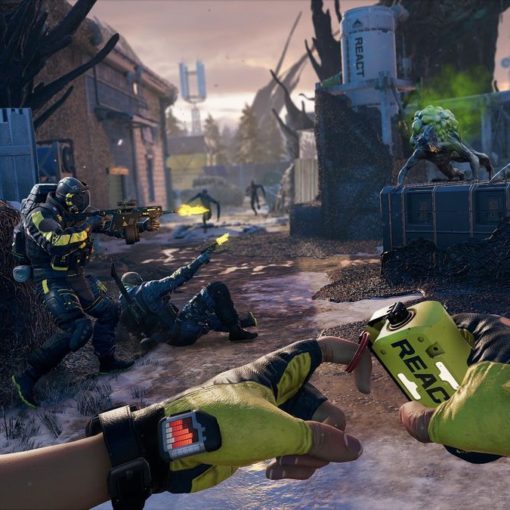The internet can be a dark and scary place. Internet trolls reside in many places, but are most commonly found lurking on the comment sections of blogs and YouTube, in online multiplayer games, or really just anywhere more than two people are able to communicate and fight with each other over asinine things. Trolls seem to get a kick out of making other people’s lives hell from the safety of their own homes with no apparent repercussions. They are also largely present when it comes to women getting harassed online, which was recently made quite apparent when Anita Sarkeesian tweeted about how no female protagonists were shown at E3 (Warning: the responses she got were quite graphic and upsetting).
Fortunately, trolls certainly do not stop us from participating in online discussions despite the unnecessarily harsh criticisms that await. As a matter of fact, there are a lot of people out there who would probably wish that we didn’t write any of the articles published here on Not Your Mama’s Gamer but we are fortunate enough that we don’t find ourselves subjected to the same degree that other women voicing their opinions in and on the video game industry do. For some (like myself), these kinds of comments are an unfortunate side effect of the internet, one that we have accepted and moved on from.
Well, for the most part. Today I am taking particular issue with these trolls. Not because of what they say, but the places in which they say it. If you listen to the podcast you know that I spend a lot of time reading gaming news and articles on some of the most popular sites; IGN, Kotaku, GameSpot, etc. I spend a large amount of time going through these sites to try and find something worthwhile and pertaining to feminist issues in the video game industry to discuss on the podcasts or in blog posts. This morning, while eating lunch at work, I came across an article on Kotaku by Kirk Hamilton about the lead female character from No One Lives Forever, a PC spy game that came out in 2000, and how she’s one of the least recognized and best female characters in video games. And he makes a really fantastic point, you should read the article, but it’s the overwhelmingly positive response in the comments that irks me a little bit.
I know what you’re thinking: positive comments about a feminist article and you’re complaining? Well, when these comments are looked at in conjunction with comments that other writers have received on similar posts the source of my anger becomes a bit clearer. One such writer is Patricia Hernandez, a Kotaku writer who has the moxie to post about feminist issues on the regular despite being constantly harassed by readers for it. When Hernandez posted an article about a video game that teaches and promotes female masturbation, one very special reader had this to say about her personally:
And another sarcastic comment on an article where Hernandez writes that she hopes that the new Mewtwo transforms in a manner similar to the trope of the “magical girl” that we see in of Sailor Moon accuses her of being anti-feminist (as if the feminine is specifically anti-feminist) and instead suggests that a more masculine/phallic Digimon transformation would be preferable.
Finally, there was this gem that accuses her of straying too far from the topic of games and into the realm of a personal crusade that we find on an article in which she discusses a website that illustrates pictures of little girls dressed up as superheroes in the context of larger geek culture and character design:
Now, in comparison, the comments Kirk Hamilton received on his article pushing a feminist ideology (AKA gender crusade, apparently):
See the difference? And those aren’t just a chosen few from his article; almost every comment is positive and praises his ability to eloquently write an article about feminist issues. Isn’t Hernandez doing the same thing, yet with a polar opposite response? The comments shown from her articles are not rare gems either, those nasty remarks pop up all the time in her articles, making the comments section a dangerous place. This is yet another inequality women are experiencing in the video game industry. I’d really like to applaud Kirk Hamilton for writing such a great article that drew so much positive attention and for writing a great article that showed a lot of people what a female protagonist has the potential to be and for his voice to a feminist discussion, but it makes me sad to think that so many other people have already done that for him and I would almost be a lone voice when applauding Patricia Hernandez’s articles.
At some point we have gotten it in our heads that women defending the rights of other women is a bad thing; or a thing that women need to be looked down upon for doing. Most people treat feminism like a kid would treat their mom for telling them to clean up their room, “Yeah, we get it women have it so hard in the industry. Cry some more to someone who doesn’t care.” Fortunately, the people who really matter in the industry are starting to get an idea of what women want to see in games. Granted, that is a very SMALL idea but it is a start. The small strides mean the most and any help we can get is appreciated.










